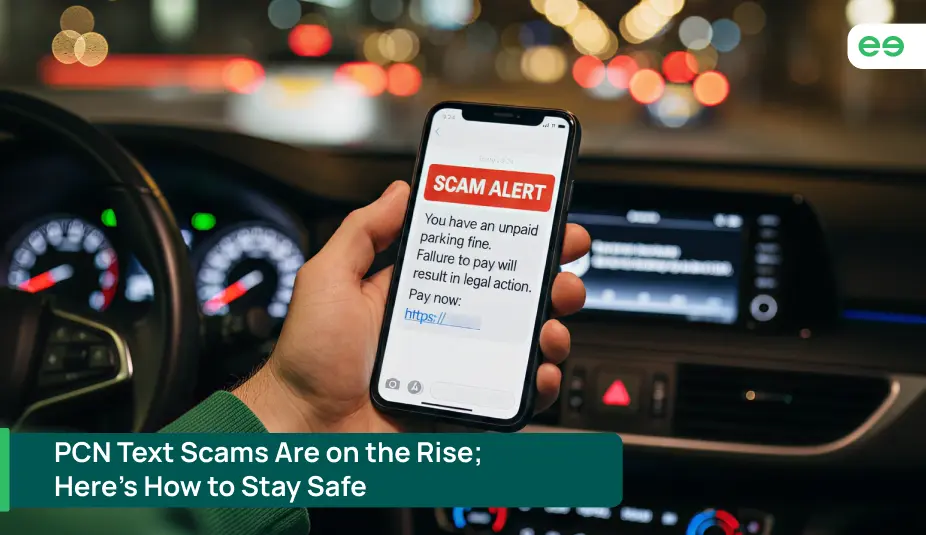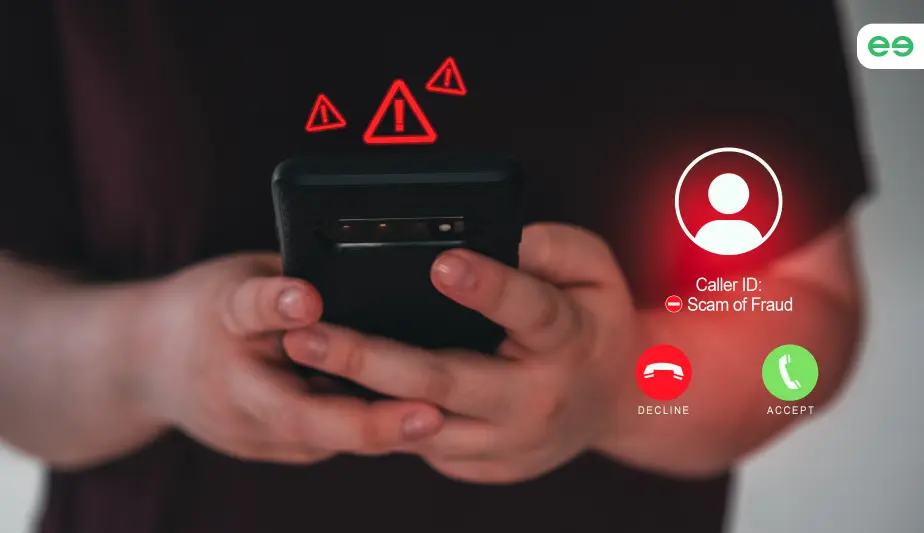PCN Text Scams Are on the Rise; Here’s How to Stay Safe

As a PCO driver, your phone connects you with passengers, but it can also bring you unwanted attention from scammers. A wave of fake Penalty Charge Notice (PCN) texts is flooding the phones of private hire drivers.
These messages often look genuine and claim you owe a fine. They usually contain a link to a website that looks similar to an official portal. Scammers use these portals to capture your payment details or personal data.
In seconds, a small mistake can lead to an empty bank account or identity theft. Understanding how these scams work is important for PCO drivers, especially those using a PCO car hire plan to earn and stay on the road.
Article Highlights
This article discusses different types of PCN text scams, including:
- Fake “Pay Now” SMS
- Threatening texts that demand personal data or bank details
- Premium-rate phone numbers or “Call to Pay” scams
- Fake appeal or refund forms that collect identity data, and more.






Fake “Pay Now” SMS with Phishing Link
In this scam, a text message arrives claiming you have a PCN. It urges you to click a link and warns of higher fines if you delay. This is a classic phishing scam.
The link leads to a fake payment page. This page looks official with all the logos and a professional layout. However, it is designed to steal your card details. You enter your information and the scammers capture it. They then use it for fraudulent purchases.
Remember that Transport for London and other regulatory authorities do not send payment requests via text. A genuine PCN arrives as a physical ticket or a formal letter.
Spoofed Official Sender (Looks Like GOV.UK / TfL / a Council)
Scammers also mimic official sender names. You might see “GOV.UK” or “TfL PCN” as the sender’s name.
Do not trust the sender’s name alone. Look for other red flags. Is the message vague? Does it lack your specific vehicle details? Genuine notices always include your full vehicle registration number, the violation location, and the exact time.
Only trust the official channels you already know. Do not trust a text from an unknown sender.
Also Read: Don’t Let PCNs Eat Into Your Earnings – Learn How to Avoid Them
Threatening Texts That Demand Personal Data or Bank Details
Some scams rely on fear. The message threatens immediate licence suspension or a court action if you don’t respond.
For a PCO driver, a licence is everything. The scammers know this and use this fear to make you act the way they want.
The official processes do not work this way. A real PCN provides a clear procedure to appeal. It does not threaten you to make an immediate payment. Any text that asks for your bank details directly could be a fraud.

Premium-Rate Phone Numbers or “Call to Pay” Scams
A text tells you to call a number to resolve a PCN-related issue. That number is often a premium-rate line. You get put on hold and your phone bill grows with every minute.
Sometimes, the number connects you to a scammer. A professional-sounding person asks for your card details over the phone. They may sound genuine, but you could end up handing your financial information to a criminal.
Always verify a phone number through the official website before responding. If you can’t find the number on the official council or TfL website, avoid responding.
Looking for a fair PCO car hire deal? Choose Fleeto to avoid stress and scams. Our plans are transparent and driver-friendly. With us, you get a reliable, TfL-compliant vehicle with no hidden fees. Drive with confidence, knowing that you are working with the most experienced and trusted PCO car provider in London.
Fake Appeal or Refund Forms That Collect Identity Data
The traffic regulatory authorities offer the option to appeal a PCN. The scammers know this and send texts with a link to “challenge your ticket.”
The link leads to a fake appeal form. It requests your full name, date of birth, and driver’s licence number. It might even ask for bank details for a “refund.” This is an identity theft trap.
The information you provide allows scammers to commit identity fraud or take over your accounts. A genuine appeal form never requires you to provide your entire identity.
Also Read: Got Penalty Points On Your Licence? Here’s What to Do


Licence / Licensing “Fast-Track” Scams Targeted at PHV Drivers
In this scam, a message offers a “fast-track” TfL private-hire licence application. It may also warn that your licence faces suspension due to an admin error. You must pay a fee to fix the problem.
The goal of the scammers is to induce anxiety in the driver so they feel obliged to make the payment.
Transport for London has made it clear that no legitimate fast-track service exists outside their official channels. All licensing communications follow formal procedures. They will not demand unexpected payments via text.
What to Do Immediately If You Get a Suspicious PCN Text?
When you get a suspicious PCN text, follow these tips to stay safe:
First, do not click any link, call any number in the message, or enter any personal or card information.
Forward the SMS to 7726. This is the official number in the UK to report any spam texts or calls. It is a free service that helps mobile network operators block potential scammers.
You can also report the message to Action Fraud, which is the UK’s national cybercrime reporting centre. Do this especially if you lost money or mistakenly gave out financial details. Also, contact your bank immediately. They can monitor your accounts and stop transactions.
If the message mentions TfL or licensing, report it directly to TfL’s Taxi & Private Hire team. They track these scams and offer guidance.

Start Earning Today.
Conclusion
As a private hire driver on a PCO car hire plan, knowing how PCN text scams work protects your income and ability to pay the weekly hire fee on time.
Genuine PCNs come on paper, not through suspicious texts. So, trust your instincts. If a message feels like a scam, it probably is. Verify everything through official websites and phone numbers you already have.
Share this knowledge with other drivers as well. An informed driver community is a safer one.
Frequently Asked Questions
What is a PCN text scam?
A PCN text scam is a fake message claiming you owe a Penalty Charge Notice. It often includes a link to a fraudulent website designed to steal your payment or personal details.
How can I tell if a PCN text is fake?
Fake texts usually come with vague details, urgent language, or suspicious links. Genuine PCNs include your full vehicle registration, violation details, and arrive by post, not text.
Do Transport for London (TfL) or councils send PCN fines via text message?
No. TfL and local councils never send PCN payment requests through text or WhatsApp. All official notices come as physical letters or through verified online portals.
What should I do if I receive a suspicious PCN text?
Do not click any links or call any numbers in the message. Instead, forward the text to 7726 and report it to Action Fraud or TfL’s Taxi & Private Hire team.
How can PCO drivers protect themselves from PCN scams?
Stay alert, never share personal or banking details via text, and always confirm PCN information on official TfL or council websites before taking any action.
Suggested Blogs
To get more information like this
Subscribe to our newsletter
Stay Informed and Earn Stress-Free With Fleeto!
PCO drivers face many challenges, but scammers shouldn’t be one of them. Fleeto keeps its drivers educated with informative blogs and simplifies your work with all-inclusive packages. Join us for a safer, more profitable future.

